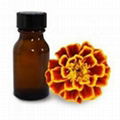| Model: | NH09 |
|---|---|
| Brand: | Nature Herbs |
| Origin: | Made In India |
| Category: | Agriculture & Foods / Gardening / Plant Seeds |
| Label: | Botanical Extracts , Herb Seeds , Essential Oils |
| Price: |
-
|
| Min. Order: | 100 kg |
| Last Online:28 Feb, 2015 |
Withania somnifera, also known as Ashwagandha, Indian ginseng, Winter cherry, Ajagandha, Kanaje Hindi,Ayamodakam in Malayalam and Samm Al Ferakh, is a plant in Solanaceae or nightshade family. It grows as a stout shrub that reaches a height of 170cm. Like the tomato which belongs to the same family, ashwagandha bears yellow flowers and red fruit, though its fruit is berry-like in size and shape. Ashwagandha grows prolifically in India, Pakistan, and Sri Lanka.
Medicinal use:
All parts of the plant are used in herbal medicine. In Ayurveda, the fresh roots are sometimes boiled in milk, prior to drying, in order to leach out undesirable constituents. The berries are used as a substitute for rennet, to coagulate milk in cheese making. Ashwagandha in Sanskrit means “horse’s smell”, probably originating from the odor of its root which resembles that of sweaty horse. The species name somnifera means “sleep-bearing” in Latin, indicating it was considered a sedative, but it has been also used for sexual vitality and as an adaptogen. Some herbalists refer to ashwagandha as Indian ginseng, since it is used in ayurvedic medicine in a way similar to that ginseng is used in traditional Chinese medicine.
Ashwagandha is reported to have anti-carcinogenic effects in animal and cell cultures by decreasing the expression of nuclear factor-kappaB, suppressing intercellular tumor necrosis factor, and potentiating apoptotic signalling in cancerous cell lines.
Fruits, leaves and seeds of the Indian medicinal plant withania somnifera have been traditionally used for the Ayurvedic system as aphrodisiacs, diuretics and for treating memory loss. The Japanese patent applications are related to the use of the herb as a skin ointment and for promoting reproductive fertility. The U.S based company Natreon has also obtained a patent for an Ashwagandha extract.
Another US establishment, the New England Deaconess Hospital, has taken a patent on an Ashwagandha formulation claimed to alleviate symptoms associated with arthritis.
The product called “ashwagandha oil” is a combination of ashwagandha with almond oil and rose water designed to be used as a facial toner, therefore should not be consumed.
Active Constituents
All chemicals listed pertain to the root unless otherwise specified, as the root is the part used.
Anaferine (alkaloid), anahygrine (alkaloid), beta-sisterol, chlorogenic acid (in leaf only), cysteine (in fruit), cuscohygrine (alkaloid), iron, pseudotropine (alkaloid), scopoletin, somniferinine (alkaloid), somniferiene (alkaloid), tropanol (alkaloid), withaferin A (steroidal lactone), withanine (alkaloid), withananine (alkaloid) and withanolides A-Y(steroidal lactones).
The main constituents of ashwagandha are alkaloids and steroidal lactones. Among the various alkaloids, withanine is the main constituent. The other alkaloids are somniferine, somnine, somniferinine, withananine, pseudo-withanine, tropine, pseudo-tropine, 3-a-gloyloxytropane, choline, cuscohygrine, isopelletierine, anaferine and anahydrine. Two acyl steryl glucoside viz. sitoindoside VII and sitoindoside VIII have been isolated from root. The leaves contain steroidal lactones, which are commonly called withanolides. The withanolides have C28 steroidal nucleus with C9 side chain, having six membered lactone ring.
Root
The roots are reported to contain alkaloids, amino acids, steroids, volatile oil, starch, reducing sugars, glycosides, hentriacontane, dulcitol, withaniol, an acid, and a neutral compound (m.p. 294-296). The total alkaloidal content of the Indian roots has been reported to vary between 0.13 and 0.31 percent, though much higher yields (up to 4.3%) have been recorded elsewhere.
Identity, purity, strength and assay of the dried roots of the plant are given below :-
Identity, purity, strength and assay.
Foreign organic matter Not more than 2%
Physicochemical constants
Ash values (%) - Total ash 6.0
Acid insoluble ash 1.5
Water soluble ash 3.0
pH values
1% solution 5.5
10% solution 5.5
Loss on drying at 105 - C 8.7%
Solid contents 91.3%
Successive extractive values (%)
Pet. Ether 0.348
Chloroform 0.304
Acetone 0.305
Alcohol 0.184











